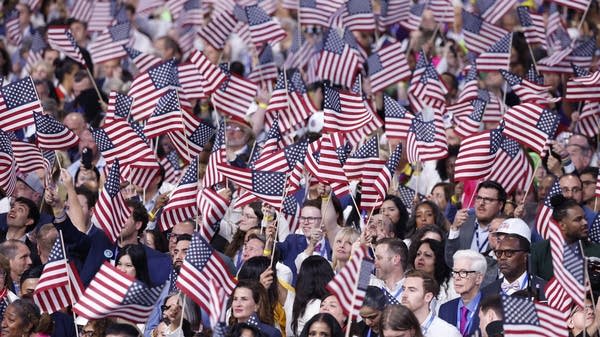Can people agree upon a shared set of American ideals?

What are your thoughts on pineapple on pizza? Cats or dogs? Is caramel pronounced car-uh-MEL or car-MUHL?
It’s tricky to get Americans to agree on just about anything, it seems. But lighter examples of pizza toppings aside, is it possible to get Americans to agree on bigger themes — like those of a shared national identity?
Our ongoing series Office Politics examines ways to cope with polarization, particularly at work. Colin Woodard is director of the Nationhood Lab at the Pell Center for International Relations and Public Policy at Salve Regina University.
The Lab recently released survey results that found a majority of Americans share a common view that America is held together by values espoused in the Declaration of Independence. Those include recognition of the intrinsic rights of all people:
to survive;
to live safe in their own person, free from domination;
to live the life they choose for themselves;
and to take part in determining who represents us and in holding them accountable.
Woodard recently spoke to “Marketplace Morning Report” host David Brancaccio about these findings. The following is an edited transcript of their conversation.
David Brancaccio: What were you and your team hunting for?
Colin Woodard: Well, we were hunting for what is it that Americans might still have in common? Why should the red states and blue states stay together? Is there something that we still share as Americans, you know, that's our common umbrella? And that came very quickly to the question of, well, what's America for? What's our purpose? Where did the country come from? Where is it going? Who belongs? All these questions that scholars would say is the national narrative of a country, something every country needs. And our country has had a very contested one. And we wanted to work out if there's still a shared narrative or a latent shared narrative out there that can be a common story that can hold us all together.
Brancaccio: So you asked people, you tested ideas with people. How did you come up with what we're about to hear?
Woodard: Well, I'd done work as a historian on the national story. Like, ours had been contested from the beginning, right? We had a bunch of colonies that didn't see eye to eye, that fought in the 1770s against consolidation of British power and found themselves in something called the United States together. It was kind of by accident, but nobody knew what that was. And so there had been this struggle from the very beginning to define "What's the United States? What's a United States-ian supposed to be?" And that quickly became a battle between defining our country in terms of devotion to a set of ideals or one that, no, this is the ethnostate or ethnostates of a particular people. And that battle between an ethnonational and inherently authoritarian vision and a liberal democratic one — small l, small d — has been at the core of our story. And is that civic national story, that we're devoted to a set of ideals and declaration, what does that look like? Do people still believe that now? And how would you talk about that now? So we did exactly what you suggest: We went out and did polling, and what we discovered almost immediately is the answer is yes, large majorities of Americans across race and gender and political party and region and education levels do, in fact, prefer and believe in that narrative tied to the ideals in the Declaration.
Brancaccio: All right, so hit me with something that will bridge the I'm talking to a Fox News fan or an MSNBC fan gap?
Woodard: Our purpose as a country is to realize those sets of rights in the Declaration, that each person was given to them by the universe or god or nature's god: the right to survive; to live safe in your own person, free from domination; to live the life you choose for yourself; and to take part in determining who represents us and holding them accountable; and that we as Americans are in an agreement, a covenant even, to defend one another's rights to these things. That's it. That's the American promise, like this pledge to uphold these inalienable shared rights. And the American Experiment is the effort to try to actually build a nation or a society where that's possible.













